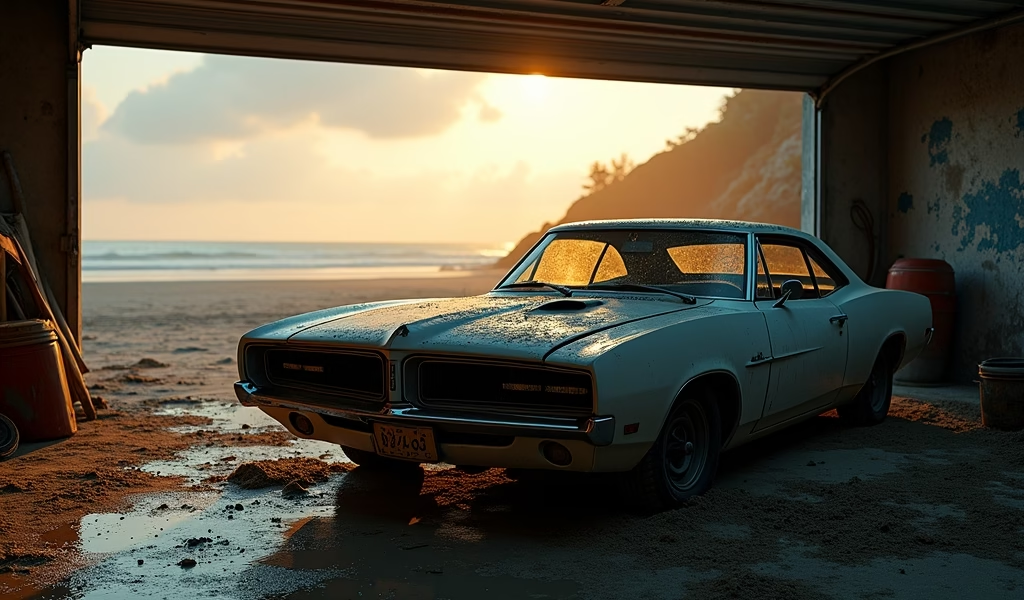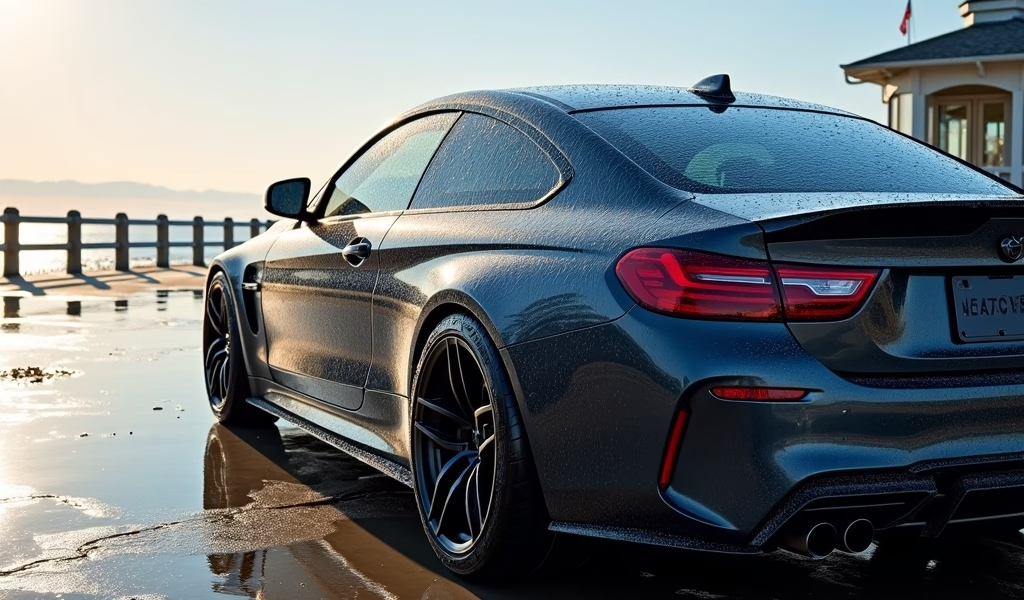Overview
Virginia Beach vehicles require specialized car washing and maintenance approaches due to the unique coastal threats of salt air, sand, and humidity which accelerate corrosion and paint damage. The article recommends more frequent washing (weekly for oceanfront vehicles), using salt-neutralizing products, choosing touchless car washes, protecting undercarriage components, and scheduling professional detailing 2-4 times annually to significantly extend vehicle life in this challenging environment.
Table of Contents
- Virginia Beach Car Wash Challenges: Why Special Care Matters
- Best Car Wash Options in Virginia Beach: Finding Your Perfect Match
- Washing Frequency Tips for Coastal Vehicles
- Essential Products for Virginia Beach Vehicles
- DIY Washing Techniques That Protect Your Investment
- Professional Detailing: When and Why It’s Worth It
- Conclusion: Keeping Your Vehicle Pristine in Paradise
- Frequently Asked Questions
Virginia Beach Car Wash Challenges: Why Special Care Matters
As a mechanic who’s spent 20+ years working on vehicles in Virginia Beach, I’ve seen firsthand what our coastal environment can do to cars. The oceanfront beauty we enjoy comes with a hidden cost to your vehicle that many owners don’t realize until it’s too late.
The combination of salt air, fine sand, and humidity creates the perfect storm for vehicle damage. Salt doesn’t just attack during beach trips – it’s constantly in our air, carried by sea breezes miles inland. This airborne salt settles on your vehicle’s surface and works its way into crevices, accelerating corrosion on everything from body panels to critical undercarriage components.
Beach sand might seem harmless, but those tiny grains are actually quite abrasive. When trapped in wash mitts or dragged across paint during improper washing, they create microscopic scratches that dull your finish over time and create entry points for rust.
Our seasonal challenges compound these issues. Summer brings increased beach traffic and higher humidity, while hurricane season can blast salt spray far inland. Even winter presents problems, with road salt adding another corrosive element to the mix.
This unique environment means that standard car care advice often falls short for Virginia Beach vehicles. What works in Richmond or northern Virginia simply isn’t enough here by the coast. Your car needs specialized attention to combat these persistent threats – which is exactly what we’ll cover in these professional tips for finding the best car wash solution for your vehicle.
Best Car Wash Options in Virginia Beach: Finding Your Perfect Match

Not all car washes are created equal, especially when it comes to protecting vehicles from our unique coastal challenges. Here’s my professional breakdown of your best options in Virginia Beach:
Touchless Automatic Washes
For regular maintenance, I recommend touchless automatic car washes like Liberty Car Wash on Great Neck Road or Autobell on Virginia Beach Boulevard. These facilities use high-pressure water jets and specialized cleaners rather than physical brushes that might trap sand and scratch your paint.
The touchless approach effectively removes salt without introducing abrasion risks. Many offer underbody spray options – absolutely essential in our coastal environment to protect against salt-induced corrosion of critical components. Look for locations that use fresh water for final rinses to prevent water spotting.
Hand Wash Specialists
For those seeking premium care, professional hand wash services like Oceanfront Car Spa near the boardwalk and Coastal Detail Studio on Laskin Road offer significant advantages. Their trained technicians understand beach vehicles’ specific needs and can spot trouble areas that machines might miss.
These specialists use multiple buckets to prevent cross-contamination and pay special attention to areas where salt and sand accumulate – wheel wells, door jambs, and undercarriage components. The price premium over automatic washes is justified by the extra attention and expertise.
Self-Service Options
For the hands-on owner, self-service bays at Laskin Road Car Wash provide powerful pressure washers with specialized soap options. These are perfect for quick rinses after beach days, when removing salt promptly is crucial.
The DIY approach lets you control pressure and focus on trouble spots, but requires proper technique to avoid damaging your vehicle. Always pre-rinse thoroughly to remove loose sand before applying any soap or touching the surface.
Mobile Detailing Services
Services like Tidewater Mobile Detailing bring professional washing to your driveway, combining convenience with expertise. These professionals bring specialized equipment and products designed specifically for coastal vehicles.
Mobile services are ideal for busy professionals or those with high-end vehicles requiring special attention. Many offer subscription packages that ensure your car receives regular care without you having to remember scheduling.
According to Consumer Reports’ research on car washing, regular washing is one of the most effective ways to prevent corrosion damage – and in Virginia Beach, choosing the right washing method is even more critical due to our unique environmental challenges.
Washing Frequency Tips for Coastal Vehicles
After decades maintaining vehicles in this coastal environment, I’ve developed some clear guidelines for how often Virginia Beach vehicles need washing:
Location-Based Frequency
If you live within a mile of the oceanfront, weekly washing isn’t just a cosmetic concern – it’s preventative maintenance. The salt concentration in our air decreases as you move inland, but even vehicles in Chesapeake or Suffolk benefit from more frequent washing than the national average.
For oceanfront residents: Weekly washing is ideal, with at least bi-weekly being the minimum.
For those 1-5 miles inland: Every 7-10 days provides good protection.
For those beyond 5 miles: Every two weeks under normal conditions, but more frequently during stormy periods when salt spray travels further inland.
Activity-Based Washing
Beyond your home location, your activities should drive your washing schedule:
After each beach visit: At minimum, do a thorough rinse focusing on undercarriage and wheel wells where salt-laden sand collects. This quick 10-minute stop can prevent significant corrosion.
After driving on freshly-salted winter roads: Wash within 48 hours to prevent accelerated corrosion from road salt, which can actually be more concentrated than ocean salt.
After storms or high winds from the ocean: These conditions carry salt spray much further inland than normal. If you can see salt residue on your windows, don’t wait for your regular wash schedule.
Seasonal Adjustments
Our Virginia Beach environment changes throughout the year, and your washing frequency should too:
Summer (May-September): Increase frequency during these months when beach visits peak, humidity is highest, and salt air is most prevalent.
Hurricane Season (June-November): Be especially vigilant during and after storms, as they dramatically increase salt spray inland.
Winter (December-February): Focus on removing road salt after winter weather events, which can cause even more rapid corrosion than our typical salt air.
Spring (March-April): Pollen season requires more frequent washing to prevent the combination of pollen and salt creating a corrosive mixture on your paint.
Remember that washing frequency isn’t just about appearance – it’s about protecting your significant investment. Studies from the National Association of Corrosion Engineers show that regular removal of salt can extend vehicle life by years, especially in coastal environments like ours.
Essential Products for Virginia Beach Vehicles
Working on coastal vehicles has taught me that standard car care products often fall short in our unique environment. Here’s what I recommend specifically for Virginia Beach vehicle owners:
Salt-Neutralizing Cleaners
Standard car soap isn’t formulated to address our primary enemy: salt. Instead, look for products specifically designed to neutralize salt, like Meguiar’s M5401 Marine/RV Salt Remover or Chemical Guys HydroSuds Ceramic Car Wash Soap.
These specialized formulas break down salt’s crystalline structure and prevent it from redepositing during the washing process. They’re worth the slight premium over standard car shampoos, especially for areas like wheel wells and undercarriages where salt concentration is highest.
Marine-Grade Protection
The boating industry has developed excellent products for protecting against saltwater – and they work wonderfully on cars too. Marine-grade waxes and sealants create a more robust barrier against salt air than standard automotive products.
For maximum protection, consider a professional ceramic coating application. While initially more expensive (typically $500-1500 depending on vehicle size), these coatings create a semi-permanent barrier against salt and other contaminants. Many Virginia Beach detail shops offer ceramic coating packages specifically designed for coastal vehicles.
Underbody Protection
The least visible areas of your vehicle often suffer the most salt damage. Invest in regular underbody spray treatments that create a barrier between vulnerable components and salt spray.
Products like Fluid Film or Woolwax can be applied seasonally to chassis components, providing long-lasting protection against corrosion. These lanolin-based products actively displace moisture and provide ongoing protection, unlike the hard “undercoating” of the past that could trap moisture and accelerate corrosion.
Interior Protection
Beach living means sand inevitably finds its way into your vehicle’s interior. Rubber floor mats with deep channels contain sand better than carpeted mats. Brands like WeatherTech or Husky Liners offer custom-fit options that protect your original carpeting.
For fabric seats, consider Scotchgard fabric protector to prevent salt stains from sweat after beach days. Leather seats benefit from regular conditioning with marine-grade leather protectants that resist the high humidity of our coastal environment.
These specialized products may cost slightly more upfront, but they’re substantially cheaper than addressing corrosion damage later. Quality car wash detailing products are an investment in your vehicle’s longevity, especially in our challenging coastal environment.
DIY Washing Techniques That Protect Your Investment

If you’re handling car washing duties yourself in Virginia Beach, these specialized techniques will help protect your vehicle from our unique environmental challenges:
The Three-Bucket Method
While the two-bucket method (one for soap, one for rinsing) is standard car washing advice, Virginia Beach vehicles benefit from a third bucket specifically for wheels and lower panels where salt and sand concentrate.
Start with wheels and lower panels using this dedicated bucket, then move to the main body with your clean buckets. This prevents transferring abrasive sand and concentrated salt to your vehicle’s cleaner upper surfaces.
Always use grit guards in all buckets to trap sand and debris at the bottom, away from your wash mitt.
Pre-Wash Techniques
Before touching your vehicle with any wash mitt, perform a thorough pre-wash routine:
Start with a high-pressure rinse, focusing on wheel wells, undercarriage, and lower body panels. This removes loose salt and sand that could scratch during contact washing.
Apply a pre-wash foam using a foam cannon or garden sprayer with specialized pre-wash solution. Let it dwell for 3-5 minutes to loosen salt deposits before rinsing again.
For heavily contaminated vehicles (after beach trips or storms), consider using a salt-neutralizing spray before your main wash process.
Proper Drying Methods
Drying is critical in our humid environment where water spots can quickly form and actually concentrate salt residue:
Use plush microfiber drying towels rather than chamois – they absorb more water and are gentler on surfaces.
Consider a leaf blower to force water out of crevices, emblems, and mirror housings where salt water can hide.
After drying, check door jambs, trunk seals, and other recessed areas where water can collect. These often-missed areas are prime spots for corrosion to begin.
Local Water Considerations
Virginia Beach water can be relatively hard, potentially leaving mineral deposits that attract and hold salt:
Consider installing a water filtration system if you wash frequently at home – removing minerals from your rinse water significantly reduces spotting.
For a budget approach, save the final rinse for filtered or distilled water on glass and paint surfaces to prevent spotting.
Remember that proper technique is as important as the products you use. Rushing through a wash can actually do more harm than good if you’re grinding salt and sand into your paint. Take your time, focus on proper pre-rinsing, and pay special attention to areas where salt collects.
Professional Detailing: When and Why It’s Worth It
Even with regular washing, Virginia Beach vehicles benefit tremendously from periodic professional detailing. Here’s my guidance on making the most of professional services:
Ideal Detailing Schedule
For vehicles regularly exposed to our coastal environment, I recommend professional detailing 2-4 times annually. This schedule helps address salt accumulation in areas you can’t easily reach during regular washes.
The ideal timing usually works out to:
Spring (March/April): To address winter salt accumulation and prepare for pollen season
Early Summer (June): Before the height of beach season and humidity
Fall (September/October): After summer beach season and before fall storms
Winter (January): Mid-winter maintenance to address road salt issues
Services Worth Investing In
Not all detailing services offer equal value for coastal vehicles. These specific services provide the most protection for Virginia Beach cars:
Engine Bay Cleaning: Salt air infiltrates your engine compartment, accelerating corrosion of electrical connections and components. Professional cleaning followed by proper protection compounds can significantly extend component life.
Paint Correction and Protection: Even with careful washing, coastal vehicles often develop fine scratches from sand exposure. Annual paint correction followed by sealant or ceramic coating application restores and protects your finish.
Interior Deep Cleaning: Beach living inevitably brings sand into your vehicle. Professional extraction and cleaning reaches areas regular vacuuming misses, preventing abrasive damage to interior components.
Cavity Wax Application: Many professional shops offer protective wax injection into door panels, rocker panels, and other enclosed areas where salt air can become trapped. This service, though invisible when complete, provides critical protection against internal corrosion.
Choosing a Virginia Beach Detailer
Not all detailers understand the unique needs of coastal vehicles. When selecting a professional, look for:
Specialization in coastal/marine environments. Detailers who also service boats often understand salt issues better than others.
Specific mention of salt-neutralizing processes in their service descriptions.
Detailed attention to undercarriage components, not just visible surfaces.
Local specialists like Coastal Detail Studio and Beach Finish Auto Spa have developed specific protocols for our unique environment, making them particularly valuable partners in preserving your vehicle.
Professional detailing shouldn’t be viewed as a luxury for Virginia Beach vehicles – it’s preventative maintenance that can save thousands in repair costs and significantly improve resale value. According to automotive valuation experts, regular professional detailing can improve a coastal vehicle’s resale value by up to 10% compared to similar vehicles without such care.
Conclusion: Keeping Your Vehicle Pristine in Paradise
Living in Virginia Beach means accepting that your vehicle faces unique challenges from our beautiful but harsh coastal environment. The salt air, beach sand, and humidity create a perfect storm that can prematurely age even the most well-built vehicles.
The good news? With the right approach to car washing and maintenance, you can enjoy our coastal paradise without sacrificing your vehicle’s appearance or longevity. By understanding the specific threats we face in Virginia Beach and implementing these professional recommendations, you’ll protect your investment while maintaining that showroom shine.
Remember that consistency matters more than perfection. Even a quick rinse after beach days or during high-salt periods can significantly reduce long-term damage. Develop a routine that works for your schedule and stick with it – your vehicle will thank you with years of additional service life and stronger resale value.
Whether you choose professional services or take the DIY approach, the key is understanding that standard car care advice isn’t enough for Virginia Beach vehicles. The extra attention required by our coastal environment isn’t just cosmetic – it’s essential protection for one of your largest investments.
When you see that gleaming, well-preserved vehicle that still looks great after years in Virginia Beach, you’re not just seeing the results of vanity – you’re seeing smart ownership that preserves value and extends vehicle life through proper care and maintenance.
Frequently Asked Questions
How often should I wash my car if I live near Virginia Beach oceanfront?
Weekly washing is ideal if you live within a mile of the oceanfront, with twice weekly rinses during heavy beach use or after storms. Even a quick rinse after each beach visit can significantly reduce salt damage.
Are touchless car washes better than brush washes in Virginia Beach?
Yes, touchless washes are generally better for Virginia Beach vehicles because they effectively remove salt without the risk of sand particles getting trapped in brushes and scratching paint. Look for facilities that offer underbody spray options for maximum protection.
What’s the most important area to clean on a car in Virginia Beach?
The undercarriage and wheel wells collect the most salt and sand, making them critical cleaning priorities. These areas experience accelerated corrosion that can affect structural integrity and safety if neglected.
Is ceramic coating worth the cost for Virginia Beach vehicles?
Ceramic coating provides excellent value for Virginia Beach vehicles by creating a long-lasting barrier against salt air and making regular washing more effective. The investment typically pays for itself in reduced detailing needs and preserved value.
Can I use regular car soap for washing in Virginia Beach?
Regular car soap isn’t ideal for Virginia Beach vehicles as it’s not formulated to neutralize salt deposits. Look for marine-grade or salt-neutralizing wash products that specifically address our coastal contaminants.

